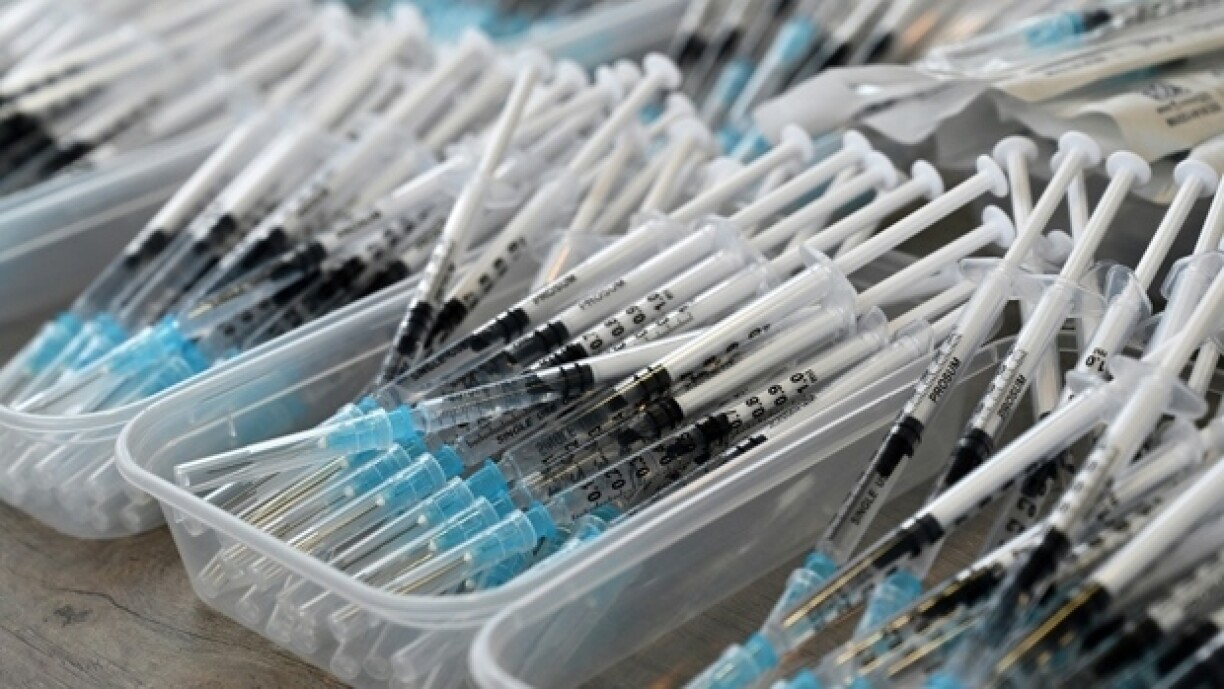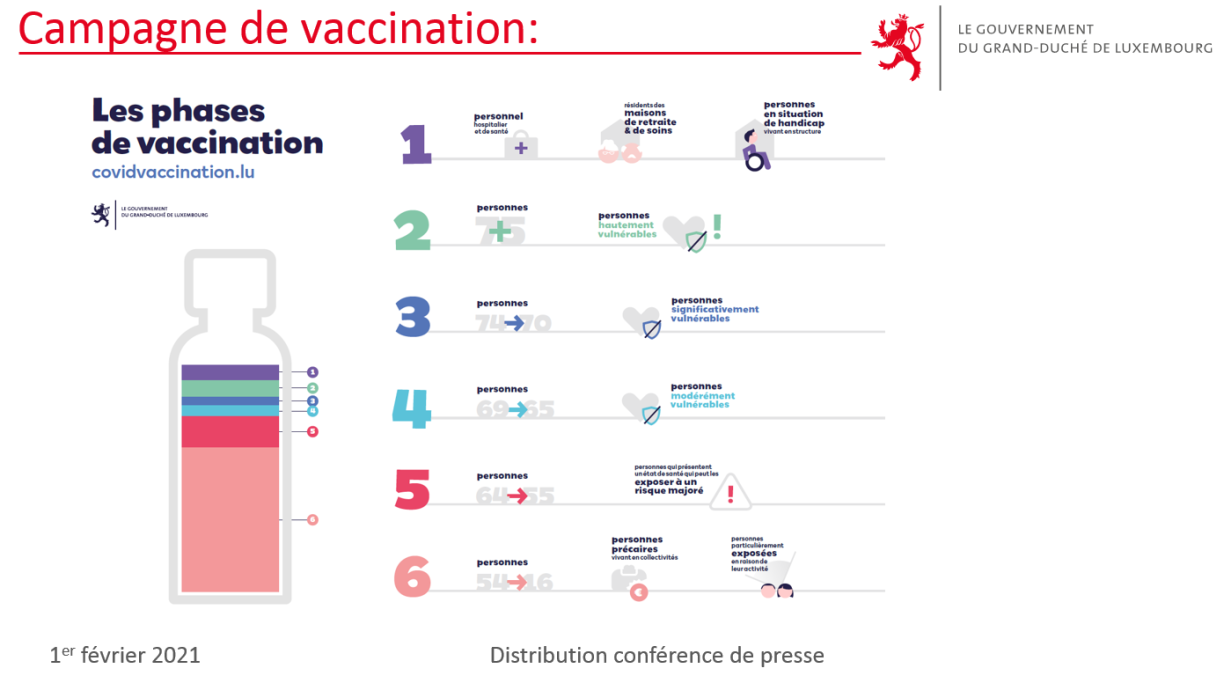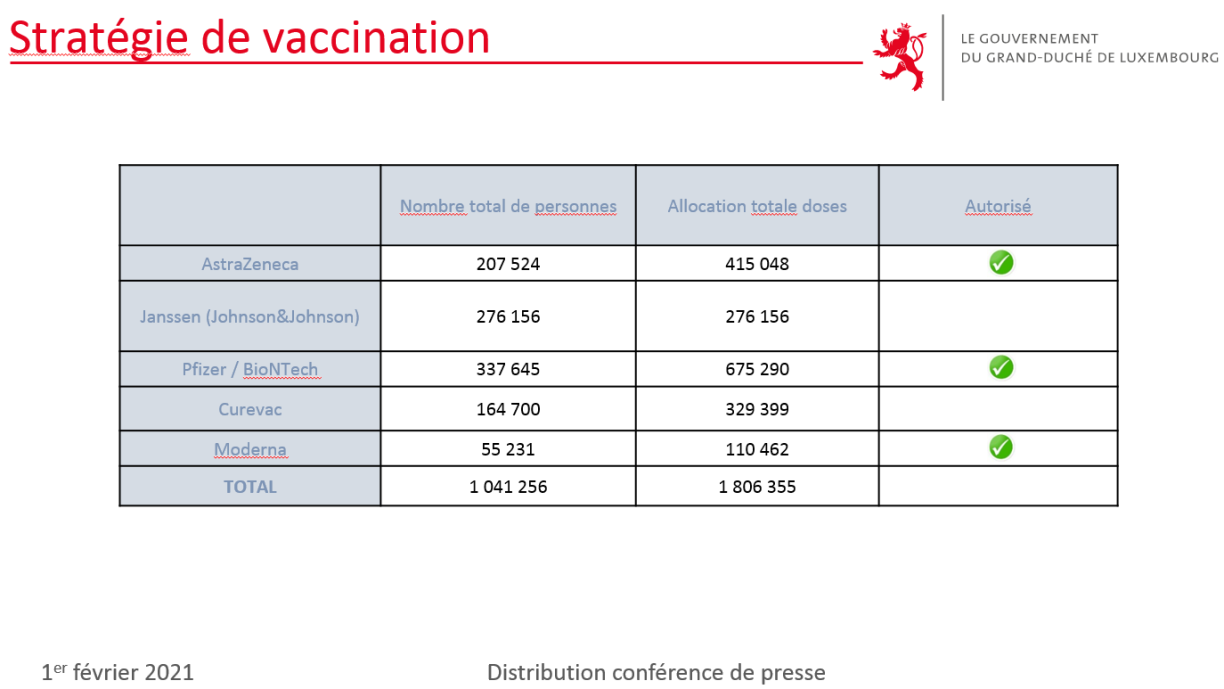
In any case, the second phase of the vaccination campaign only starts once the current phase has ended. At the moment, health care workers and staff members in senior and care homes are receiving their first and second doses of the vaccine. Furthermore, around 800 people with pre-existing conditions, who live in a care facility, are also part of the first phase.
Phase 2 will then aim at vaccinating people above the age of 75 and those who are classified as “highly vulnerable”. They include people with trisomy 21, receivers of organ donations, as well as those receiving bone marrow transplants. Chief medical officer Dr Jean-Claude Schmit explained that all three groups include a few hundred people. He further noted that the group of cancer patients is even bigger, but just as important in their prioritisation: “We talked to the National Cancer Institute and concluded that there are 3,000 to 3,300 such cases.”

Phase 3 targets people between the age of 70 and 74. Phase 4 those aged 65 to 69.
Phase 5 includes people between the age of 55 and 64, starting from oldest to youngest. The strategy further includes people who are more vulnerable due to diabetes, hypertension, or obesity.
Phase 6 then targets people between the age of 16 and 54, including people at risk of exposure due to their work, and vulnerable people who have not already been vaccinated, i.e those at risk due to a recent development.
Teenagers and children below the age of 16 will not be vaccinated.
The ministry of health presented the national strategy on Monday and emphasised that people who received the vaccine may still get infected and transmit the virus to other people in some instances.

The Large Scale Testing will continue to operate until 15 Juli. Between September 2020 and January 2021, the process managed to identify 9,200 positive infections. The next phase of the testing will now focus on mobile teams, which monitor senior and care homes, as well as schools. The third phase is estimated to cost around €43 million.
On Friday, the testing station at Findel airport was closed until further notice. Passengers arriving at the airport from a non-EU country will still be able to perform a flash test, costing €10.
Antibody tests also continue to be performed across six centres. On 10 January, the prevalence was at 7%.
Meanwhile, the Covid centres in Kirchberg and in Esch-sur-Alzette have new opening hours, now operating between 10 a.m. and 3 p.m.. Symptomatic people are able to receive free treatment at these centres and be tested.